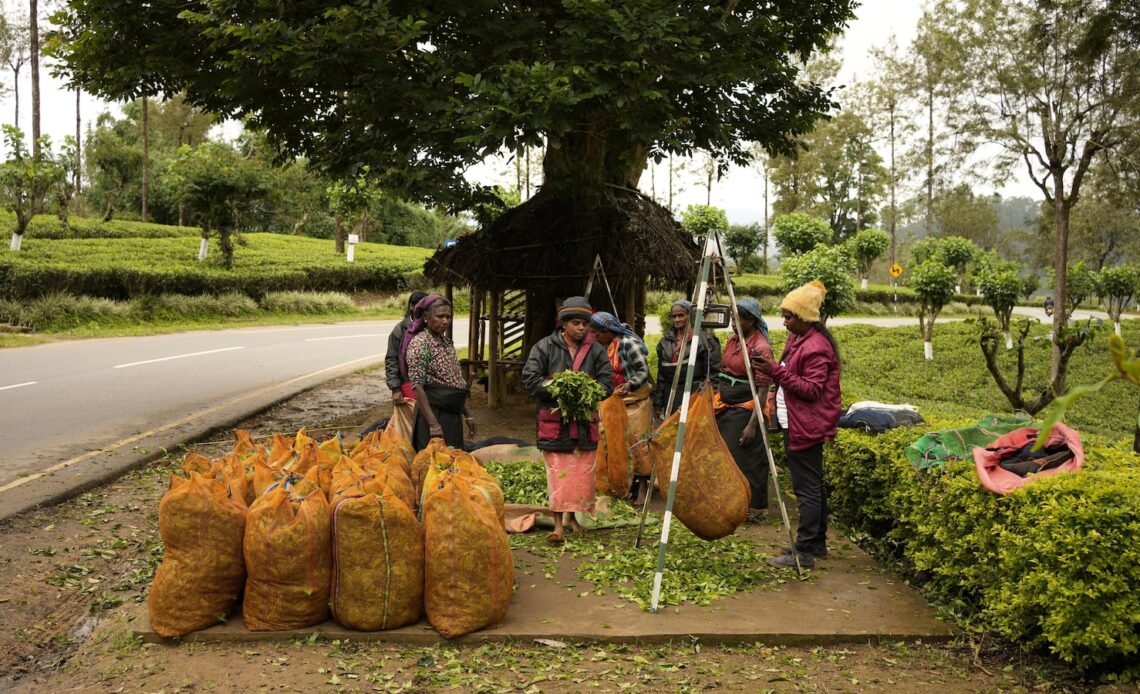SPRING VALLEY, Sri Lanka — Whoever Sri Lanka’s next president is, Muthuthevarkittan Manohari isn’t expecting much to change in her daily struggle to feed the four children and elderly mother with whom she lives in a dilapidated room in a tea plantation.
Both leading candidates in Saturday’s presidential election are promising to give land to the country’s hundreds of thousands of plantation workers, but Manohari says she’s heard it all before. Sri Lanka’s plantation workers are a long-marginalized group who frequently live in dire poverty, but they can swing elections by voting as a bloc.
Mahohari and her family are descended from Indian indentured laborers who were brought in by the British during colonial rule to work on plantations that grew first coffee, and later tea and rubber. Those crops are still Sri Lanka’s leading foreign exchange earners.
For 200 years, the community has lived on the margins of Sri Lankan society. Soon after the country became independent in 1948, the new government stripped them of citizenship and voting rights. Around 400,000 people were deported to India under an agreement with Delhi, separating many families.
The community fought for its rights, winning in stages until achieving full recognition as citizens in 2003.
There are around 1.5 million descendants of plantation workers living in Sri Lanka today, including about 3.5% of the electorate, and some 470,000 people still live on plantations. The plantation community has the highest levels of poverty, malnutrition, anaemia among women and alcoholism in the country, and some of the lowest levels of education.
They’re an important voting bloc, turned out by unions that double as political parties that ally with the country’s major parties.
Despite speaking the Tamil language, they’re treated as a distinct group from the island’s indigenous Tamils, who live mostly in the north and east. Still, they suffered during the 26-year civil war between government forces and Tamil Tiger separatists. Plantation workers and their descendants faced mob violence, arrests and imprisonment because of their ethnicity.
Most plantation workers live in crowded dwellings called “line houses,” owned by plantation companies. Tomoya Obokata, a U.N. special rapporteur on contemporary forms of slavery, said after a visit in 2022 that five to ten people often share a single 10-by-12-foot (3.05-by-3.6 meter) room, often without windows, a proper kitchen, running water or electricity. Several…
Click Here to Read the Full Original Article at ABC News: Business…

